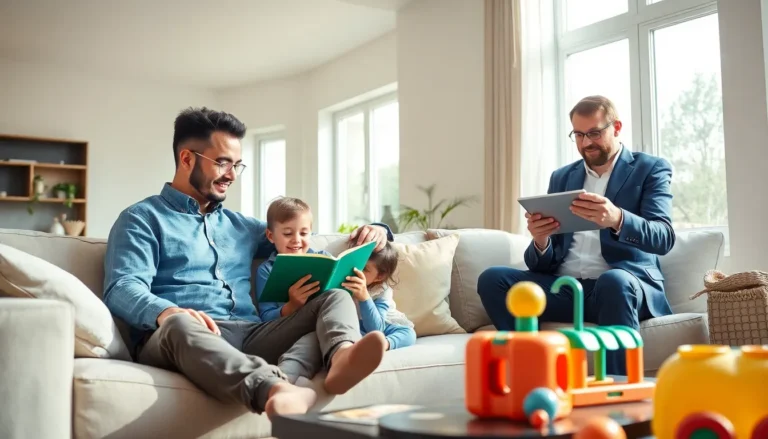Table of Contents
ToggleNavigating the waters of parenthood can feel like surfing during a storm, exciting but slightly terrifying. Whether you’re a solo parent steering the ship alone or a single parent managing both the captain and crew roles, understanding the nuances of these parenting styles is crucial. In this text, we’ll break down the definitions and differences, helping to illuminate which category you might find yourself in, and perhaps even provide a few chuckles along the way.
Defining Solo Parenting

Solo parenting means raising children without a partner’s support in the day-to-day parenting tasks. This could be by choice, as in the case of someone who decides to embark on parenthood independently, or due to unforeseen circumstances, like the loss of a partner or a relationship breakdown. In many cases, solo parenting involves a unique blend of strength and tenacity. They tackle everything from diaper changes to school runs alone, often with the help of friends, extended family, or community programs. It’s a journey filled with both challenges and triumphs, emphasizing the resolve of a single individual committed to their child.
Being a solo parent requires immense resilience. Balancing work, childcare, and the array of other responsibilities can often feel overwhelming. The emotional landscape can be equally complex, as solo parents grapple with feelings of isolation and the pressure of being solely responsible for their child’s well-being, yet are often fiercely proud of their independence.
Defining Single Parenting
Single parenting, on the other hand, typically refers to adults raising kids alone due to various situations, often including divorce, separation, or the choice to raise children without a co-parent. Unlike solo parenting, single parents may still share custody or parental responsibilities with another individual, even if they don’t live together. They often navigate co-parenting arrangements, balancing their parenting philosophies with those of their former partners.
The dynamic in single parenting frequently involves court agreements and external support, which can both ease and complicate their experience. For instance, one might have scheduled visitations, child support discussions, and shared parenting responsibilities, which can create a unique challenge but also present opportunities for collaborative parenting.
Key Differences Between Solo and Single Parenting
There are distinct differences that set solo and single parenting apart. Understanding these can aid parents in better navigating their circumstances.
Emotional Impact on Parents and Children
The emotional journey varies greatly between solo and single parents. Solo parents may feel a profound sense of loneliness, dealing with the weight of their responsibilities without a co-parent. This can lead to increased stress levels and potential feelings of inadequacy. In contrast, single parents often face the emotional challenges associated with co-parenting dynamics, including potential conflicts with their child’s other parent, which can also take an emotional toll.
Children raised in solo households might develop a strong sense of independence at an early age, often learning to be self-sufficient. On the flip side, kids with single parents may navigate complex feelings about their parents’ relationship, potentially leading to confusion or a desire to seek harmony between two homes.
Challenges Faced by Solo and Single Parents
Both solo and single parents encounter their own unique challenges, although some challenges overlap.
Coping Strategies for Solo and Single Parents
For solo parents, establishing a support system is vital. They might rely more heavily on friends, neighbors, and community resources. Flexibility is crucial, as unexpected challenges arise daily. Encouraging open discussions with children about feelings can help foster emotional resilience for both parent and child.
Single parents, meanwhile, often find it beneficial to communicate effectively with their co-parent. This ensures a united front for the children, promoting stability and reducing confusion. Support groups can also play a pivotal role, finding camaraderie among fellow parents in similar situations can be both a relief and a resource for sharing coping strategies.





